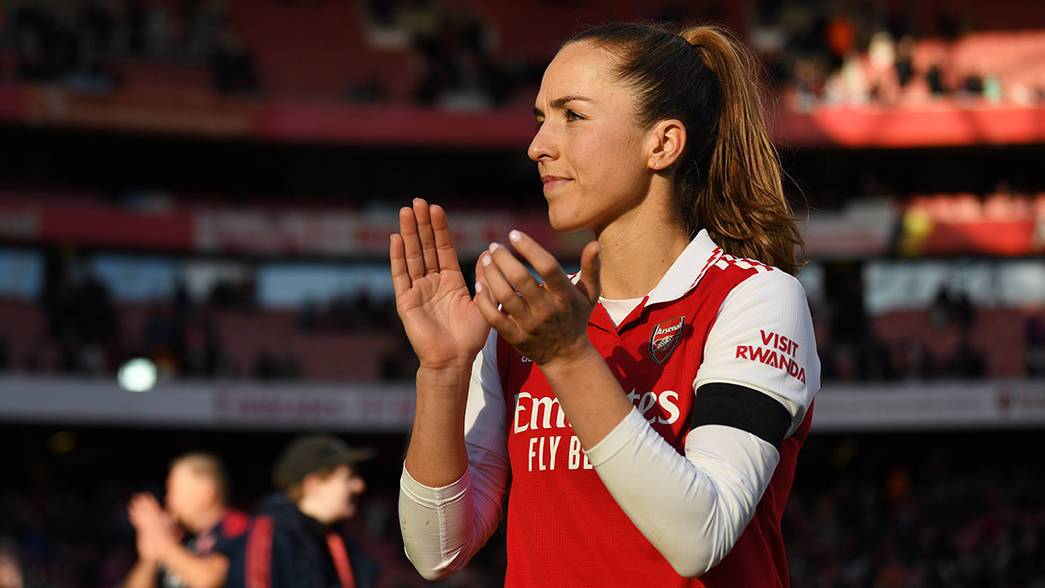On International Women’s Day, we’re happy to announce that Coaching for Life, our football programme that builds sustainable resilience in children at the Za’atari refugee camp in Jordan, has recently achieved gender equity.
Five years on from its launch in 2018, the number of girls participating has now doubled and there are now as many girls taking part as there are boys.
Za’atari is one of the world’s most populated refugee camps, hosting around 80,000 people, more than half of whom are children. The programme focuses on supporting children and their families who fled their homes since the outbreak of the Syrian war in 2011.
Taking inspiration from almost 40 years of Arsenal in the Community’s work in north London, combined with Save the Children’s experience in conflict and humanitarian crises, Coaching for Life uses the power of football to build a sense of belonging and improve the physical, mental, and emotional wellbeing of children.
Independent studies show that girls who have been affected by conflict are more likely to face extensive gender discrimination and inequality, which puts them at greater risk of child marriage, gender-based violence, child labour and exclusion.
Coaching for Life has removed the barriers to girls participating in football activities through education and by providing opportunities for them to come together to play football with their friends, building self-worth and confidence. Investment in female coaches has also helped to increase girls’ participation.
We spoke to our Director of The Arsenal Foundation, Mairead King, about what the future holds for the programme: “As we look forward, it’s imperative that Coaching for Life adapts to tackle the ever-changing challenges families face so we can ensure sustainable, long-term transformative change for children.
“One of the adaptions we’re making is to shift the focus of our programmes from gender equity to a gender transformative approach. This means building on the work we’ve started to include boys and men in the conversation so we can break down stereotypes and develop positive masculinity. Then we must ensure this engagement is continuous and persistent to challenge the root causes of inequality in the camp and wider society.
"We know we can’t return the participants to their former lives, but our model which has supported young people in Islington for almost 40 years can have a positive impact on the children here in Za’atari.”
Diala Khamra, CEO of Save the Children Jordan, added: “One of our aims when we launched Coaching for Life was to shift the mindset so that not only the young girls themselves felt comfortable playing football, but their families also understood the social and psychological benefits of their participation. Through education and by providing opportunities to play in safe spaces with trusted adults, we’ve achieved our gender parity objective.
“I’m so proud of what the girls have achieved. Not only have they created their own community and developed a sense of belonging among peers, but they’ve also been empowered with leadership and advocacy skills that enable them to speak up for themselves and defend their rights away from the football pitch.”
Over the next five years, the aim is to achieve long-term transformative and sustainable change for children in the Za’atari camp. To reflect this ambition, Coaching for Life has evolved to take into consideration the challenges facing the Za’atari community today, lessons learned from the last five years, and children’s voices to ensure their experiences are truly understood.
You can hear the impact of our work through the words of Mairead, Diala and Coaching for Life Project Manager, Israa, in the video at the top of the page.
Copyright 2023 The Arsenal Football Club plc. Permission to use quotations from this article is granted subject to appropriate credit being given to www.arsenal.com as the source.













